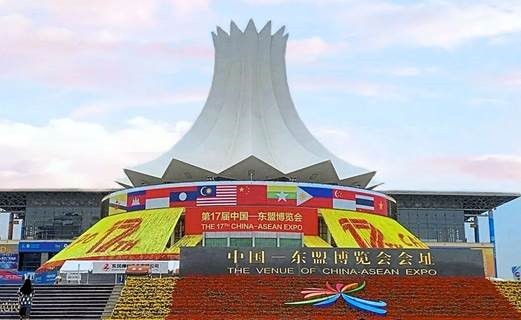
The 17th China-Asean Expo (CAExpo) was a successful one despite the ongoing spike in Covid-19 cases worldwide.
Affected by the pandemic, the event was held after a two-month delay and on a smaller scale with 5,400 booths, of which some 85% were Chinese companies.
Asean booth numbers dropped from last year’s 1,548 to 574, and Malaysian exhibitors, in particular, were reduced from 167 to 26.
Despite this, the expo achieved stunning results with a total of 86 investment projects worth 263.87bil yuan (RM165bil) signed in four days.
This is an increase of 43.6% compared to last year, announced the expo’s secretariat.
CAExpo is a major annual exhibition for Malaysian businesses, particularly for small and medium enterprises (SMEs) to showcase their products and seek partnerships in China.
For Vincent Tiong, a 27-year-old newbie in the business world, it was a learning ground.
“I learnt how to deal with people from around the world, the experienced traders taught me how to bring products into the market and shared contacts with me.
“It is a good experience and I learnt a lot from them, ” said Tiong, expressing his gratitude to those who helped him along the way.
Tiong took up a challenging task by bringing an “unknown” product into China, which imposes very strict policies on imported goods, last year.
His stingless bee honey from Sarawak had to undergo more than 10 laboratory tests before the authorities finally gave the green light.
Despite these difficulties, the former insurance agent said he considered such challenges as a part of life.
This was his second participation at the expo, in which he obtained over 300 contacts of potential dealers last year.
“It was the fastest track for me to boost sales and enable me to survive through the pandemic period when business was down, ” he said, adding that he also spent time following up on dealerships.
Recalling an incident at the event last year, Tiong said an 85-year-old retired teacher, who has digestion problems, came to his booth inquiring about his product.
“After trying out, she returned to purchase it again and now, she has become my distributor in Guangxi, ” he added.
Being a national school student, Tiong speaks little Mandarin and is unable to read Chinese, but this has not hampered Tiong from choosing China as a starting point, thanks to his wife who is a Chinese national.
The Taiping-born said he met her during a trip to Nepal in 2018 and it was love at first sight when he saw her sitting at the next table at a local restaurant. They got married nine months later.
“She helps me with all the paper work, ” he added.
Tiong also pointed out that the Asean-China Free Trade Agreement has facilitated the import process of his product while reducing the cost to make his honey competitive in the local market.
Under the agreement, the 13% VAT tax and the 15% Customs tax for his product were waived, and that he only had to bear the 9% agricultural tax.
For foodstuff and durian importer Loh Wee Keng, the expo was a very good platform to promote his products.
“This is a major exhibition which attracted big players in the world.
“Not only that, I can promote my products locally and distribute them to other countries through China.
“Getting one or two big distributors here is good enough for a business to grow, ” said the Malaysian businessman based in Beijing.
The opening of the CAExpo in Nanning city of the southern Guangxi Zhuang Autonomous Region is a sign of China being almost free from the coronavirus.
However, Chinese authorities were not taking any risks.
Before travelling to the province, Loh had to take a Covid-19 nucleic acid test within seven days of his arrival date to get his media accreditation from the organiser.
Every province or municipality has its own Health Code app, which all travellers must fill up and show upon arriving at the destination.
Loh was also required to arrive two days before the opening of the expo, to be “quarantined” in Nanning and to undergo another test at the hotel, strictly designated for the media and expo-related staff, a day before entering the exhibition centre.
After the test, Loh was told not to leave the hotel and that he had to wear a mask whenever he left his room.
For the public, there was no selling of tickets on the spot this year.
They were required to pre-apply for the entry passes with the results of their nucleic acid tests.
The public open day was also fixed on Dec 1 for crowd control purposes. Strict control and taking no risks – this is how the Chinese deal with the pandemic
Source: https://www.thestar.com.my/opinion/columnists/colours-of-china/2020/12/07/road-to-making-it-big-in-china

